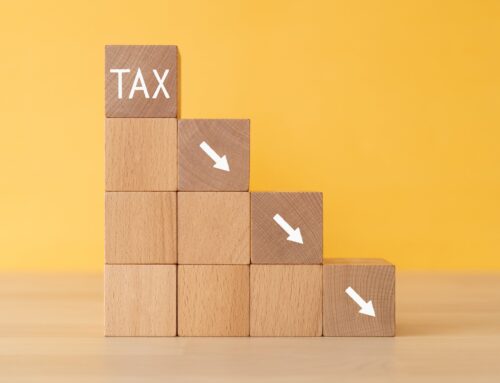
As the coronavirus spread, the government stepped in with unprecedented economic interventions, from direct payments to Americans, to relief for businesses. While these measures may be necessary to mitigate the damage done by the virus and the economic shutdown, they’ve also resulted in a ballooning of the national deficit.[1] U.S. government debt could soon rise to 130% or 140% of gross domestic product, as compared to last year when it was around 100%.[2] Many experts predict that this could potentially lead to higher taxes in the future, as it did after the government spending during WW2.[3] If you’re concerned about your tax burden in retirement, consider strategies for tax minimization in 2020 and beyond. The CARES Act may offer your tax relief in the short-term, and there are other tax minimization strategies for the long-term.
CARES Act Tax Relief
Retirees who would normally need to take Required Minimum Distributions from their retirement accounts now have the option to forego taking distributions for 2020. If you have already taken your 2020 RMD from your account, you have 60 days to undo it.[4] You are also not required to take an RMD from an inherited retirement account.[5] However, if you’ve already taken a distribution from an inherited retirement account, there is no way to put the money back in.[6] If you don’t need the income from an RMD, you can take advantage of this opportunity. By keeping your income for 2020 low, you can potentially reduce your tax burden or possibly make a Roth IRA conversion. Evaluating your income and tax burden are some of the many ways a financial advisor can help you with tax strategies.
Roth Conversion
You have the option to convert funds from a traditional IRA, 401(k), or similar qualified retirement account into a Roth IRA. In this case, you would pay tax on the funds converted and then be able to withdraw them tax-free later on. It’s important to consider that the Tax Cut and Jobs Act lowered tax rates – and that these lower rates probably won’t be around forever. With a growing national deficit in the wake of the coronavirus, it’s worth considering your tax burden in the future. Converting to a Roth could help to potentially minimize any damage from recent market volatility by allowing funds more time to grow tax free, as they are not subject to RMDs or taxes if they are withdrawn.
If we’re enjoying historically low tax rates right now, should you take advantage? A financial advisor can help you create a long-term tax minimization strategy as part of a comprehensive retirement plan. Contact us to find out how we can create a plan to fit your unique needs.
[1] https://apnews.com/b483d9691de2b83a8b35951508c3b4d1
[2] https://www.wsj.com/articles/longer-term-prospects-of-coronavirus-response-bigger-state-higher-taxes-11586696401
[3] https://www.wsj.com/articles/longer-term-prospects-of-coronavirus-response-bigger-state-higher-taxes-11586696401
[4] https://www.irs.gov/retirement-plans/plan-participant-employee/rollovers-of-retirement-plan-and-ira-distributions
[5] https://www.congress.gov/bill/116th-congress/senate-bill/3548/text#toc-H638004C502804947B4CFB9B4B770C2F2
[6] https://www.irs.gov/publications/p590b#en_US_2019_publink1000230542









